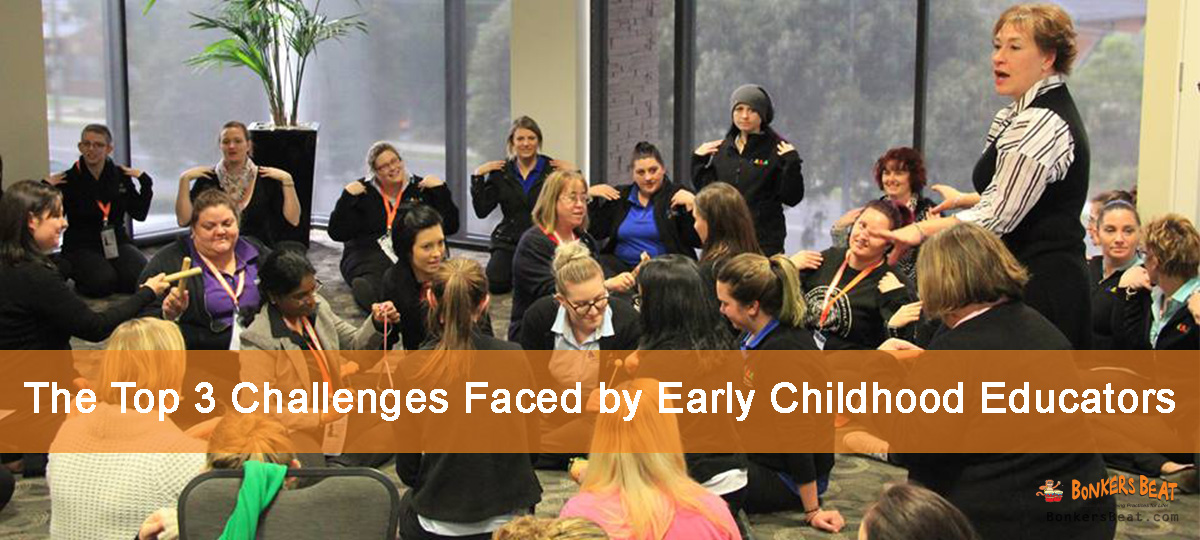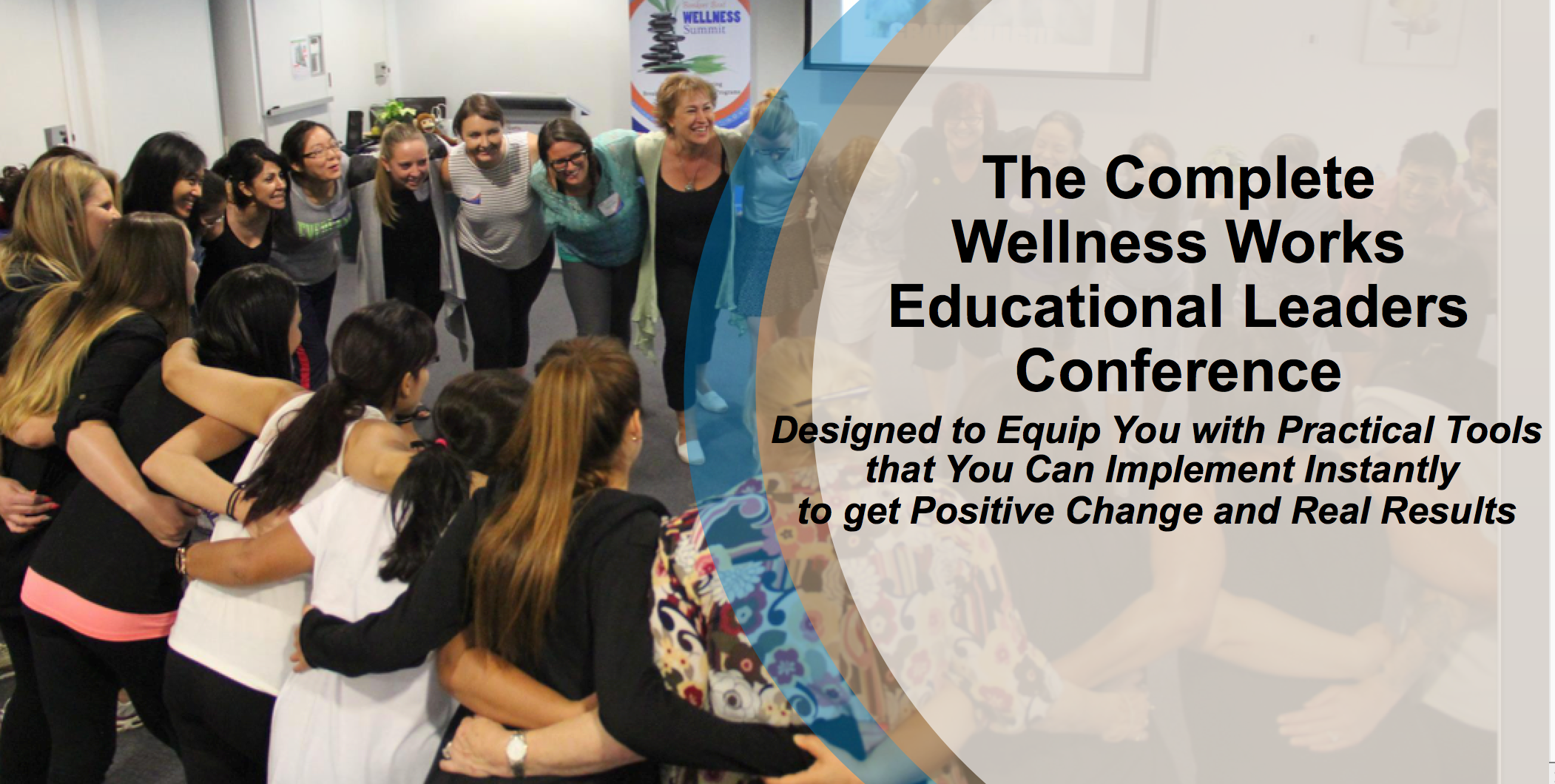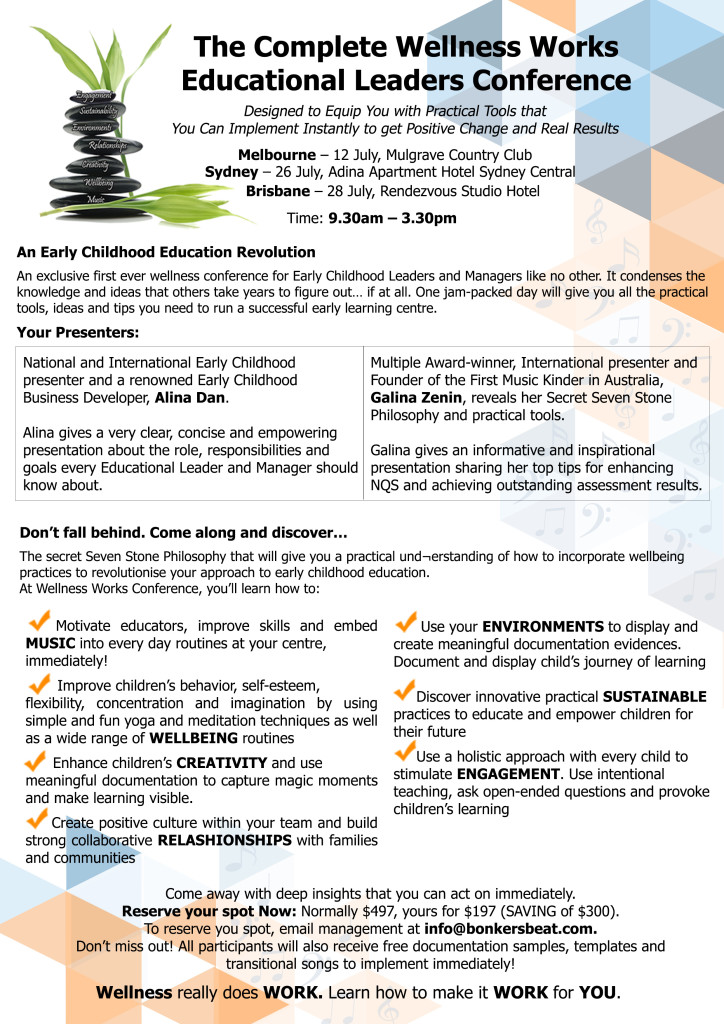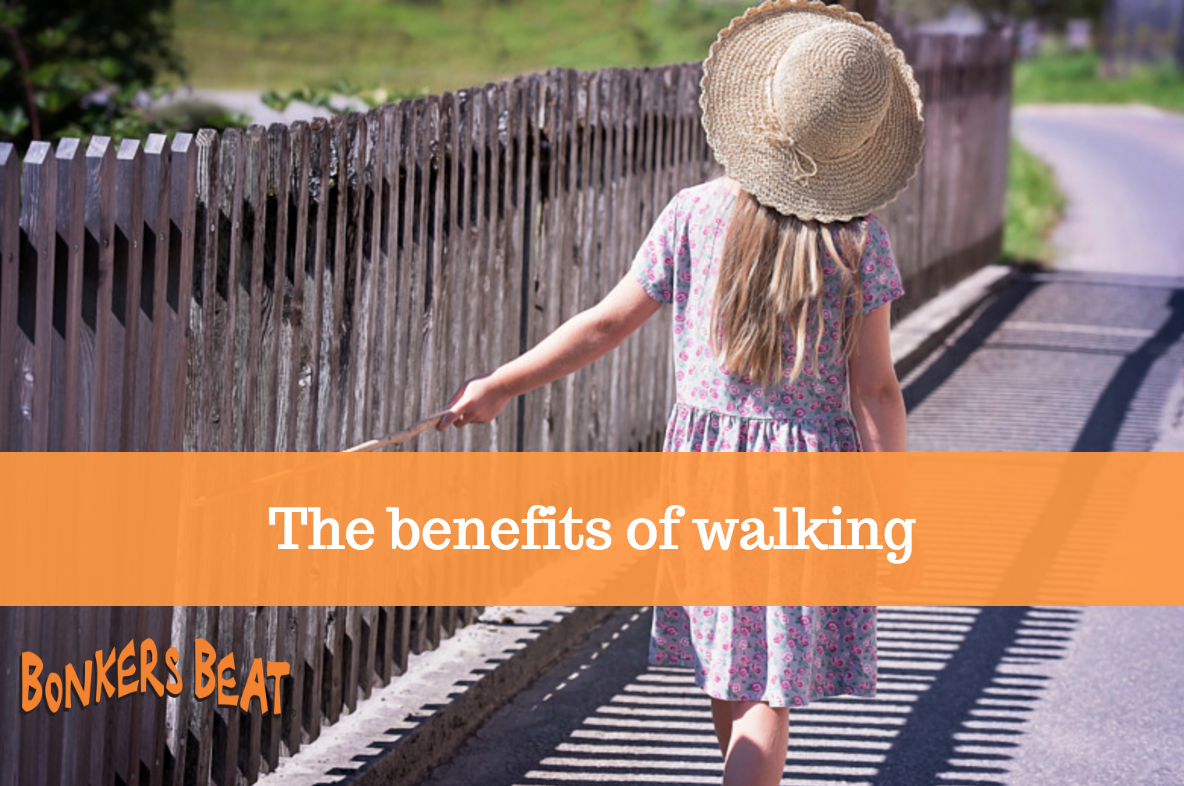On July 12 the very first Wellness Works: The Complete Early Childhood Leaders Conference took place in Melbourne… And what a fantastic success it was!
In the lead up to the Melbourne event, we did some research to find out exactly what challenges in early childhood education were coming up for educators, leaders, managers and owners working in the field. The reason for this was to ensure that the conference addresses what you really want and need from your early childhood professional development. We asked many centres to share their top three challenges, and it’s safe to say there was a theme in the responses!
Top 3 Challenges in Centres
Here are the top 3 challenges in early childhood education that we identified after reviewing responses from a range of centres. These are challenges that are faced on a daily or regular basis by educators, room leaders, management and owners.
Motivation
Many centres find they have difficulties with motivating their teams – from getting them motivated initially, to keeping them motivated. This is a priority at Wellness Works and is addressed thoroughly. Our approach is through empowering and motivating the leaders in the centre as the basis of improving motivation levels across the team. Our tactics and tips are foolproof…
Transitions
If you’re like the vast majority of the educators we heard from, transitions continue to cause stress and are a great source of frustration in centres. We’ve been careful to focus on this area and deliver practical ways for your centre to tackle transitions. You will even find them enjoyable…!
Documentation
How do we document a child’s learning, how do we maintain adequate – even excellent – standards for our centre’s documentation without it being a job too big to handle? Documentation is a hot topic for early childhood and we set out to improve your understanding of documentation and make sure it is no longer a huge challenge for you and your centre.
Do these challenges sound all too familiar? Not to worry –Wellness Works: The Complete Early Childhood Leaders Conference comes to Sydney on July 26 and Brisbane on July 28. Both Galina and Alina (or the Duolinas as they’ve been dubbed!) are really excited. If you’re coming along to Wellness Works, you should be excited too! (And if you haven’t got your seats organised yet, you’re in luck as there are still a couple of places available for Sydney and Brisbane – be quick and get them here!)
What Early Childhood Professionals are Saying
Here’s what just a few of the Melbourne Wellness Works attendees had to say about the event:
“Thank you today was very enjoyable. I have RSI I took so many notes!”
– Mandy, Joseph Avenue ELC
“Great opportunity. I feel empowered to take back to a team. Loved the songs and games”
– Rebecca
“This PD was fantastic, all the info was great, very engaging and fun”
– Jessica, Aberdeen Street ELC
Join us at Wellness Works: The Complete Early Childhood Leaders Conference and let’s break down your challenges in early childhood education and address them together.
Featuring the engaging and experienced early childhood experts, Galina and Alina, this just might be the best professional development session you attend this year!







